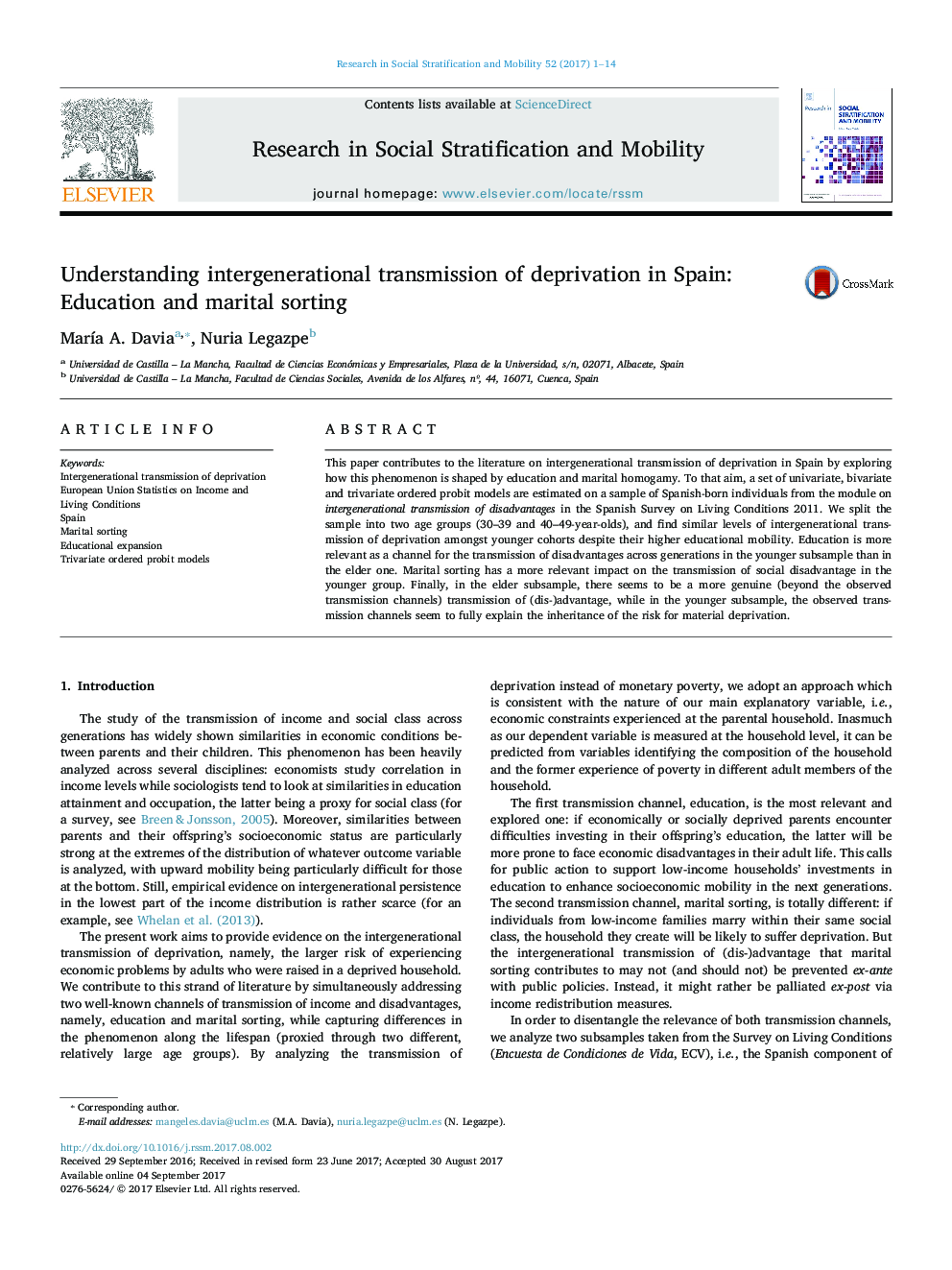| Article ID | Journal | Published Year | Pages | File Type |
|---|---|---|---|---|
| 5106577 | Research in Social Stratification and Mobility | 2017 | 14 Pages |
Abstract
This paper contributes to the literature on intergenerational transmission of deprivation in Spain by exploring how this phenomenon is shaped by education and marital homogamy. To that aim, a set of univariate, bivariate and trivariate ordered probit models are estimated on a sample of Spanish-born individuals from the module on intergenerational transmission of disadvantages in the Spanish Survey on Living Conditions 2011. We split the sample into two age groups (30-39 and 40-49-year-olds), and find similar levels of intergenerational transmission of deprivation amongst younger cohorts despite their higher educational mobility. Education is more relevant as a channel for the transmission of disadvantages across generations in the younger subsample than in the elder one. Marital sorting has a more relevant impact on the transmission of social disadvantage in the younger group. Finally, in the elder subsample, there seems to be a more genuine (beyond the observed transmission channels) transmission of (dis-)advantage, while in the younger subsample, the observed transmission channels seem to fully explain the inheritance of the risk for material deprivation.
Keywords
Related Topics
Social Sciences and Humanities
Economics, Econometrics and Finance
Economics, Econometrics and Finance (General)
Authors
MarÃa A. Davia, Nuria Legazpe,
